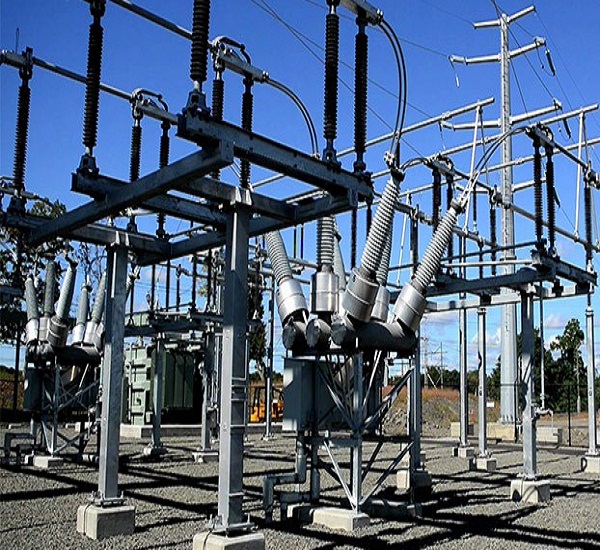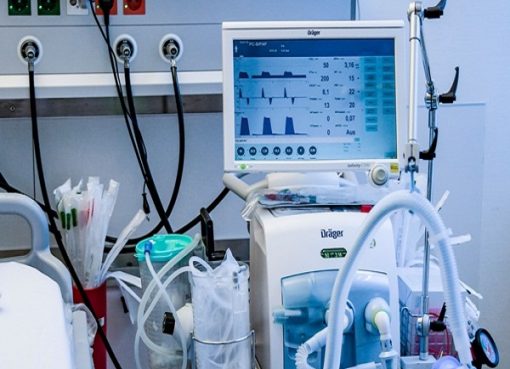With the despondent state of the Nigerian electricity market, stakeholders in the power sector may have found themselves in a cul-de-sac as the current administration appear clueless in the face of persistent grid collapse, poor coordination and looming strike action by electricity workers.
While the National Union of Electricity Employees (NUEE) is currently looking at resumption of its suspended one-day nationwide strike should government fail to quickly implement its demands, electricity consumers, who spoke to us insisted that power situation was getting from bad to worse.
Experts in the sector, who also expressed displeasure over the Federal Government’s inability to take any meaningful step five years after coming on board, called for a state of emergency, which would make for strategic coordination as the government and private sector players have been engrossed in blame trading.
Penultimate Friday, the national grid collapsed, leaving the country in total darkness. That collapse was the 13th time that the system will be disrupted this year.
In what most stakeholders described as an absurdity in a privatised market, NUEE had embarked on a strike on Wednesday December 11 and suspended it on Thursday December 12 after their action disrupted the grid for hours.
Just after the interruptions caused by the strike penultimate week, the Abuja Electricity Distribution Company (AEDC) announced that the nation’s capital would be without supply for three consecutive weekends. This is even as consumers in places like Apo, Dawaki, Kubwa and other areas of the Federal Capital Territory noted that the situation in their domain had become hopeless.
Findings showed that the level of electricity load received by the AEDC had dropped to as low 100Megawatt (MW) of recent, it went up gradually to about 400MW, but fell below the average 500MW the company usually received.
The situation in Abuja is not different from places like Asaba, Delta State, where a consumer, who identified herself as Mercy Mgbidi noted that her apartment has been without public power supply for four days.
In Lekki, Lagos State, Jenifer Ekojowan said that power supply in her area has been erratic since the strike action was called off, while for Lolade Akintunde, who resides in the Ipaja area of Lagos State, supply has been stable after the industrial action by NUEE.
In terms of regulation, the African Development Bank (AfDB’s) 2018 Electricity Regulatory Index (ERI) report, revealed that Uganda remained Africa’s number one, followed by Namibia and tailed by Tanzania.
An index of worst performing countries in terms of electricity, which was conducted in 2017 by Spectator Index, rated Nigeria second worst out of 137, with only 4000 MW daily generation, which barely gets to the consumer.
A look at the performance chart of the Nigeria Electricity System Operator in the last 30 days revealed that peak generation remained at about 4, 000MW.
Penultimate week, Senate President, Ahmad Lawan had faulted the power sector privatisation, alleging that the exercise was fraudulent.
The Nigerian Electricity Regulatory Commission (NERC) has threatened to withdraw the license of eight electricity distribution companies over an alleged breach of rules, but nothing has happened since the ultimatum issued by the regulator elapsed few weeks ago, making some stakeholders to conclude that NERC was only a barking dog.
For associate professor of Energy Law at the University of Lagos, Yemi Oke, the power situation in the country has gone out of hand, and solutions being deployed by the current administration were creating more problems for the sector.
He faulted the timing of the recent directive issued by NERC to the DisCos, stressing that it was unnecessary, while noting that there were measures that the regulator had in place and could have deployed under extant laws to deal with the situation on skill-by-skill basis, as against categorisation of the DisCos.
“The challenges for the DisCos are not uniform, they have peculiarities as to the manifestation of their challenges, so we shouldn’t use one brush to paint all the DisCos, except the two that were scolded. Threatening to revoke licenses of all the DisCos, except two, would have thrown jitters down the spine of the power sector operators and investors,” he said.
He disclosed that in terms of investment, some investors have already started pulling out, while realities in the sector are indicative of the fact that the sector is not truly privatised.
Oke, who equally tasked government on addressing the gas challenges noted that “something must be done before the sector total gets out of hand.”
Director, Centre for Petroleum, Energy Economics and Law (CPEEL), University of Ibadan, Prof. Adeola Adenikinju called for a state of emergency in the sector, noting that the sector was plagued by poor coordination.
“We have an emergency in the sector. All the stakeholders need to sit together to admit and agree on what to do. We are in a big problem. There are too many divided voices. I don’t really see correlation of actions to achieve the same goal. There should be a central voice on what needs to happen. We cannot continue like this,” Adenikinju said.
The pioneer Managing Director of the Nigerian Bulk Electricity Trading (NBET) Plc, Rumundaka Wonodi, who also stressed the need for a coordinated response to the sector’s challenges, noted that poor leadership remains the biggest challenge in the sector.
He also decried what he described as unnecessary interference by some agencies, especially on the directives of NERC, especially in the areas of sanctioning the DisCos.
While decrying the inability of government to allow cost reflective tariff, Wonodi faulted the current tariff methodology, just as he regretted that electricity supply in the country has never been predictable.
This according to him affects consumers and would continue to lead to importation of power generating sets, since consumers cannot predict when there would be power supply or interruption.
The President, Nigeria Consumer Protection Network (NCPN), Kunle Olubiyo, who stated that the recent strike by NUEE was needless and avoidable, said the industrial action cost the country a conservative sum of N4b.
According to him, there was need for government to keep faith with the affected workers in the overall interest of the country since previous administrations entered into the agreement with workers before privatisation.
The former Chairman of NERC, Sam Amadi, said the power sector is currently in mess, as well as in severe distress.
“My worry is that the interventions by NERC and the Federal Government are not addressing the crisis. More bailouts would be equivalent of providing free lunch to operators if we don’t exercise step-in rights,” Amadi said.
According to him, the government needs to effectively correct the error of governance in the privatisation exercise, by getting NERC to reset market expectations and performance, and take out those who can’t perform.
Amadi said said: “This regulated action will be proper because it will not be ordered by the Presidency, or the minister, but will be industry reviewed and peer-referenced. That’s the way to go. Reshape the governance structure of the market through incentive-based regulation. By the several bailouts without governance control, we are entrenching a moral hazard that will completely destroy the sector.”
Source: Guardian










